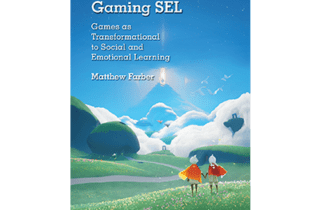Presented by Amy Jones Lewis, Vice President of Instructional Design, Math (K-12), Carnegie Learning; and Tarin Barrow, Director of Product Education Services, Carnegie Learning
Moderated by Katie Ruff, Director of Product Marketing, Mathematics, Carnegie Learning
Presented by Sara Delano Moore, Ph.D., Vice President, Content and Research, ORIGO Education
Presented by Sara Delano Moore, Ph.D., Vice President, Content and Research, ORIGO Education
Presented by Matthew Farber, Ed.D., Assistant Professor, University of Northern Colorado
Moderated by Jennifer Ehehalt, Sr. Regional Manager, Common Sense Education
Presented by Brian Thomas, Former Classroom Teacher & National Account Manager, TCI
Presented by Lindsey Tropf, M.Ed., Founder and CEO, Immersed Games
In this edWebinar, learn about games and gamification and receive practical examples to try in your own settings or inspire changes to existing lessons.
Common Sense Education celebrated the launch of their newest free education resource, Digital Compass. Based on the concept of “choose your own adventure” books, Digital Compass guides students in grades 6-9 to learn the fundamentals of digital citizenship through animated, interactive experiences in which students choose several different paths for each character.
Are you using games in the classroom? Have you thought about bringing games to your class or institution? Would you like to find out more about the value of using games to engage and assess students?
Digital games have the potential to transform K-12 education as we know it. But what has been the real experience among teachers who use games in the classroom? And what kind of resources can help prepare teachers who want to implement more games into their curriculum, but need more help making sense of the existing research that’s out there as well as some suggestions for practical use?











